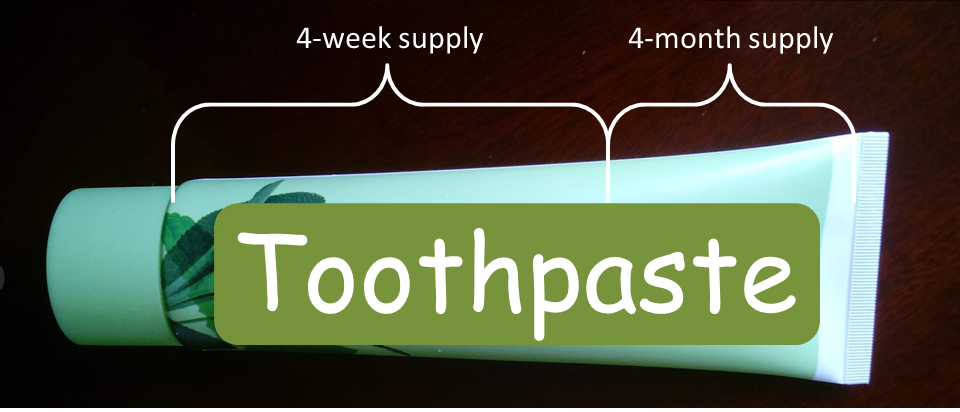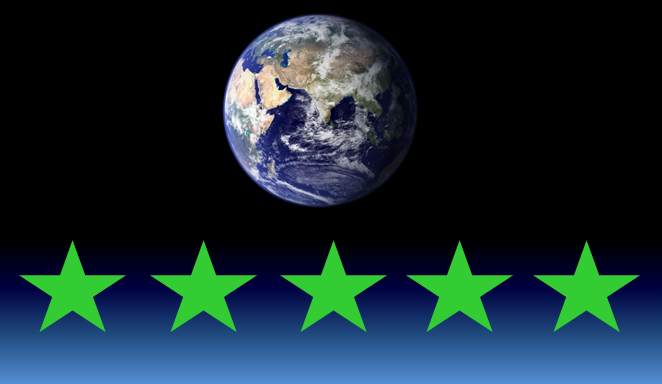To me, ethical consumerism is a pretty self-explanatory term and I think that most people have a good idea of what it means. But it’s worthwhile to take a fresh look at the concept from time to time and address any misconceptions that crop up. So here’s a quick guide to ethical consumerism from the Green Stars Project:
1. Ethical consumerism means consuming less
2. It’s your personal ethics statement
3. It is the most fundamental form of activism
4. It’s the most effective way to make corporations responsible
5. It is a civic duty
6. Ethical consumerism is possible under capitalism
Here’s a little more detail on each of these points:
Ethical consumerism means consuming less
When you see guides (or Instagram feeds) featuring tons of fancy-looking ethical items you sometimes get the impression that all these people do is shop! And there are certainly social media “influencers” who receive free products and/or get paid to endorse stuff that’s superfluous or not really that ethical. (I don’t do that here – I believe it’s hard to be truly impartial if you accept gifts or money.) But, despite inclusion of the word consumerism, a core aspect to ethical consumerism is the need to reduce consumption. The essence of this is captured by this well-worn (pun intended) motto: the most ethical shirt is the one you already own.
This motto applies to many items, but of course sometimes we do need to buy stuff. In the Daily Footprint series of posts, I’ve focused on the essentials: the items that most of us are going to buy from time to time (mainly food), from bread and milk to a phone and laptop.

I think the image above illustrates how a lot of people deal with purchases – we only shift to economy mode when the item is almost gone. It could also symbolize how corporations have viewed our planet’s resources over the last century or two. We have squeezed our Planet Earth toothpaste tube down to breaking point, and now need to slow down this rate of resource usage (and emissions) to allow any hope of regeneration.
This is linked to the concept of the tragedy of the commons: the idea that somebody will exploit the shared resources of our planet for their own gains. This has been going on a long time; perhaps it reached a zenith during colonialism and now most of us agree that it has to stop. Unfortunately, there are still people who want to “seize a business opportunity” that exploits the planet, animals, or people. Some of the largest global corporations are virtually hardwired to act like this (see this post on how this all began) and they are at their worst when political sociopaths from their old-boy network gain power (Can you think of any?).
It’s your personal ethics statement
Ethical consumerism starts with a question: what do I actually believe in? Or, what values are most important to me? People will differ on how they rank them, but here’s a post on the criteria that can be used to decide on an ethical rating (1-5 Green Stars) for a business or product. Here are the criteria I think about most often (CHIP, for short):
- Climate (carbon footprint, sustainability)
- Habitats (land and water use, pollution, farming methods)
- Inequality (wealth distribution, corporate hegemony, animal rights)
- Population Growth (community development, trade practices)

It is the most fundamental form of activism
Whatever you care about in this world, one of the most fundamental actions that you can take is how you spend money. A purchase from a company is a financial transaction that supports the activities that this company carries out, good or bad. And make no mistake, corporate activities range from the best to the worst of human behavior, from the empowerment of developing communities to child slavery, from the restoration of habitats to species extinction. I don’t think the term voting with your wallet quite does justice to the impact and importance of our purchase decisions.
The habits that you adopt as a consumer, such as following a (mostly) plant-based diet, rank among the most important actions that you can take to reduce suffering and strain on the planet.
It’s the most effective way to make corporations responsible
Corporations are among the most powerful entities on the planet and the only thing that drives decision-making for most of them is their revenue stream. It’s as simple as that. And it’s especially true when their political allies undo social and environmental protection laws, as is sadly happening in several countries at the moment.
It is a civic duty
The one thing that unites us all is the need for food, shelter and clothing. How we obtain these items for ourselves has an impact on everyone else on the planet. What you choose to eat, the clothes you choose to wear, the electronics you buy; they all have an impact on numerous people, worldwide.
The most rudimentary ethical principle is to do no harm (or the golden rule). The majority of the harm that you and I are responsible for on this planet is indirect. When you wake up in the morning, it’s probably not on your agenda to go out and burn forests and peatland in Malaysia but you may fund that activity when you buy cookies containing non-sustainable palm oil to go with your mid-morning coffee. Not to mention the wide-range in impact of your choice of coffee.
Ethical consumerism is possible under capitalism
The idea that ethical consumerism is not possible under capitalism is largely based on the fact that a few giant global corporations supply the majority of the products available in stores. That’s definitely a concern, but it only underscores the need to seek out and support more ethical products. I’ve already written a full rebuttal, so I’ll just refer you to that post.
~~~
For further reading, the United Nations has a useful overview of the topic of sustainable production and consumption, one of the UN’s 17 Sustainable Development goals for 2030.
Should the global population reach 9.6 billion by 2050, the equivalent of almost three planets could be required to provide the natural resources needed to sustain current lifestyles.
The only solution is that our lifestyles need to change! There are two aspects to this change:
- Educate yourself on the choices that you need to make and do a little research on the item you intend to buy.
- Write a review of the product/company to share your thoughts and spread the word. This greatly amplifies your impact by informing others, impacting the company/product rating online, and also informing the company on what you think they are doing right/wrong. This is the basis of the Green Stars Project.

There is so much great information in this post. I am one who researches before I buy and I eat a plant based diet. I hadn’t really considered the overall importance of these actions…I was simply following my intuition. Thank you for connecting these seemingly small actions to the whole, and the healing of the planet and collective.
LikeLiked by 1 person
Thanks so much Carrie! Please consider including a green stars rating if you ever write a review online!
LikeLiked by 1 person
Carrie, your comment got me thinking: how many people live ethical lifestyles simply because it makes sense to them, not because they researched and made a concrete decision to adopt this lifestyle?
I am often reflecting on how so many generations often had more ethical/sustainable practices before us, and it worked, so how much of that is innate in us and we just don’t realize it?
LikeLiked by 1 person
So many things I wish to convey to people, presented in a great article. This is so well-written. I’m sharing it.
LikeLiked by 1 person
Thank you SO much Julie. I really appreciate it.
LikeLike
Thnak you very much for this post, so much interesting!
LikeLiked by 1 person
so beautiful
to be posted
on billboards
everywhere 🙂
LikeLiked by 1 person
Love the toothpaste graphic. So true. I can squeeze that tube down to nothing when I have to!
LikeLiked by 1 person
You did a really great job of explaining how our actions can have consequences that we may not realize. Your word choice was very smart. It can be challenging sometimes to explain this to someone, because their reaction may be along the lines of “I wouldn’t burn the forest, how dare you imply that!” Your explanation really takes a good approach to avoid the wrong type of upset.
LikeLiked by 1 person
Oh, thanks! That’s really useful feedback. I appreciate it. Looking forward to checking out your site!
LikeLike
Glad I could help with my ramblings.
LikeLiked by 1 person
And I thought ethical consumerism is an oxymoron. I do some of these recommendations already mainly because my personality traits agree with it: I rarely shop for clothes, I save money by stretching toiletries, I love minimalism in home interior design. But I guess I could do more with this in mind.
LikeLiked by 1 person
Cheers AJ! Thanks for reading and thinking about how it applies to your life 🙂
LikeLike